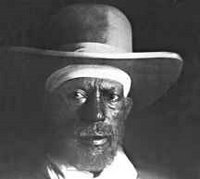When Parents Bury Their Children: A Story I've been Dying to Tell

I was surprised to hear someone
mention her name at the December 2005 wedding that brought me to the country
that birthed me. It took me a full week to find her number and when I called
her, she screamed. I think, in joy. I promised to visit her and her husband and
their two children the following day. But she asked me to come as early as I
could because she needed to attend an arba in her neighborhood (the
40-day anniversary of a person’s death remembered by a prayer and renewed
mourning).
“Addis
Ababa is amazing, so beautiful,” she said, almost in a whisper. Seeing her for the first time in two decades had been surreal. As was the sight of her children, two girls who looked like carbon copies of herself. And nothing like the strange husband of hers who eyed me suspiciously. I kept thinking thank you Jesus the children don't look like you.
Her words broke
the silence that had set between us since we left her home. The neighborhood
where we grew up had changed dramatically but some of its sounds were familiar
to our ears, including the muezzin’s calling of the faithful to the
day’s last prayers. But these days, he was competing with the Qidase
from the new Orthodox church. She kissed the church’s gates but impressive as it
was, the gigantic Monophysite edifice obstructed the view of the august Wechacha
Mountains that adorn the northwest gates of the city behind which the Addis sun
has set for millions of years.
It
had been many years since we had seen each other. Twenty-one years to be exact.
Our paths had diverged when we were children but unbeknownst to each other, we
had both lived in northeastern United States for many years. Her face had not
changed much. The unruly, nappy, and often uncombed “baby” afro she sported as
a young girl had been her way of distinguishing herself from the prissy rich girls
at the international school she attended. I glanced at her from the corners of
my eyes and observed what I had missed as a child—she was beautiful—the once
tomboy’s generous lips stood in stark contrast with her slanted eyes set
against an incredibly dark face. Her nickname, a combination of an Amharic
adjective (describing her complexion) and an English proper noun (a country in
Asia) was completely fitting.
“You
did not even write me once! Twenty-one years is a long time!”
Twenty-one
years is indeed a very long time. “But you left Haimanot. One day you were a
permanent fixture in the neighborhood, the next, you were gone. All we heard
was that your father put you guys in his car and drove all the way to Nairobi.
I thought of you often after you left.”
“You’re
lying,” she said, smacking my shoulder hard. She still liked to hit people.
“Aren’t you?” She seemed to plead, as she smacked my shoulder again. “You
didn’t write me because I’m just the little girl who always annoyed you!”
I
kept walking, deep in thought, thinking about the passage of time. Our children
were almost the same age when she and I knew each other. There was much we
wanted to talk about, much to catch-up on. But she had a place to go, souls to
comfort, and heavy tears to shed.
We
heard the wailing from a distance and each step we took in the direction of the
shrieks of women in pain, my heart sank lower and lower. The arba was
for a young boy who was shot by the Ethiopian police in November 2005. Haimanot
and the boy’s mother were edertegnoch.
The
significance of the moment struck me. Twenty-one years ago, Haimanot’s father
had fled Mengistu’s Ethiopia when he discovered he was a marked man by
Mengistu’s henchmen. Like millions of Ethiopians, our lives as refugees in
foreign lands was compelled by governmental repression. And here we were,
twenty-one years later, on our way to a leqso that would have never
taken place but for the Ethiopian government’s killing of a child.
I
didn’t think I should attend the arba. It felt voyeurish. I didn’t know
the family and I have always found that aspect of our culture distasteful. Some
may disagree with me but if death has visited your home, there’s nothing
stranger than seeing hordes of people you’ve never seen before, especially at arbas
when you’ve learned to deal with your sorrow and are more aware of your
surrounding. Death should be a private moment with close friends and family
members and not a public spectacle. But I couldn’t resist the urge to enter the
compound. I needed to.
Haimanot
began wailing the moment we entered the compound. Her public display of sorrow
surprised me; it finally showed her age. I quickly sat on the nearest chair I
could find and bowed my head but Haimanot kept walking deeper into the tent,
toward the boy’s mother, uttering words inaudible to me. It was during the
renewed wailing in the tent that I saw the boy’s photograph adorned in a golden
frame and that hung suspended on a tent pole. A face I will never forget.
I
have never heard such hatred for the Ethiopian government as I did that day.
Their government had taken the life of a boy most of them knew. And with them,
I hated this government that allowed its goons to fire live rounds at innocent
and unarmed children.
I
decided to head home, to my hosts, sometime after dinner. She offered to walk
me to the main road, to the taxi stand. I managed to convince her not to and I
bid her farewell outside the leqso bet. I promised to stay in touch and
all she said was “demo atetfa” (“so don’t disappear again.”)
____________
We have kept in touch and she permitted my discussion of the arba. The name Hamianot, which is altered to protect her identity describes her God-fearing nature. The boy was shot in the northeast region of Addis Ababa, an area bordered between Fitawrari Habte Giorgis and Yohannes Streets. He did not immediately die of his gunshot wounds. I regret I did not express my condolences to the parents and should’ve abandoned my supercilious principles to do so. But it is what it is.
The boy was just a kid. I don’t even think he was born when Mengistu was in power. The only recurring question I’ve had in the last year is whether the heathens who ordered the shootings of protesters have kids of their own. Don’t they understand the agony of a parent who buries a child? And therein lies the reason why the EPRDF is hated by the governed: a government accountable to its people understands parents’ love for their children—their wish to see their children grow healthy, receive a decent education, and above all, to not see their children's death. What Ethiopians ask is essentially a government that respects this fundamental order of the cosmos.
In a sane world, the head of a government who ordered its security officials to shoot down unarmed protestors would immediately resign. Judge Wolde-Michael Meshesha’s comments in his interview with EMF and Ethioguardian (taken from Ethiopian Politics) are a must read and the judge's account of Zenawi’s deflecting of blame on the government of Sudan for poorly training his goons shows the man’s inability to be accountable to the very constitution he created.
-------------------------
It’s difficult to find music that expresses the rage that compelled kids to march in droves in June and November 2005. I found it in Lauryn Hill’s I Find it Hard to Say. Listen to it here. Consider her opening lines:
I find it hard to say, that everything is alright
Don't look at me that way, like everything is alright
Cuz my own eyes can see, through all your false pretenses
You think our lives are cheap, and easy to be wasted
As history repeats, so foul you can taste it
And while the people sleep, too comfortable to face it
His life so incomplete, and nothing can replace it
And while the people sleep, too comfortable to face it
Your lives so incomplete, and nothing can replace it
Fret not thyself I say, against these laws of man
Cuz like the Bible says, His blood is on their hands
-------------
Under construction:
Where is it Mr. Fung? We will pick-up on the CUD trials in Addis Ababa from where we left in They're Allowed to Take Notes and will make passing reference to Barry Scheck’s unanswered questions to LAPD criminologist Dennis Fung.
The making of a Nation: A discussion of the qualities Ethiopians should require of their leaders. The posting will start with 1896 and a discussion of Emperor Menelik’s dreams for the nation he created.
Mr. Meles, the Federalist: An analysis of the premier’s disingenuous application of the Federalist Papers and Madisonian democracy to Ethiopia (inspired by TC’s rage).
"Can you give that a rest? Damn." An ode to the spouses who make sure the children are fed on time and who bear with our late night blogging.
___________________________________________
This posting is dedicated to the 193 + families who suffered a loss in June and November 2005. The fallen, most of them young, died to make representative government a reality in their country.
___________________________________________
This posting is dedicated to the 193 + families who suffered a loss in June and November 2005. The fallen, most of them young, died to make representative government a reality in their country.



